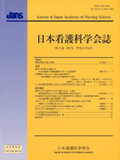Japanese
English
- 販売していません
- Abstract 文献概要
- 参考文献 Reference
要旨
統合保育が推奨されながらも,その中核的課題である幼児の相互作用に関する研究はきわめて少ない.そこで先行研究として,健康児と健康障害児の社会的相互作用を検討した結果,顕著な差異が身体的接触を伴う社会的行動特性で認められた.その結果をもとに本研究は,統合保育の遊び場面における身体的接触の意味を明らかにすることを目的として,23名の健康障害児を含む200名の保育園児の遊びをビデオテープに記録し,身体的接触の観察された29場面を質的に分析した.
その結果,健康児同士の身体的接触は,仲間関係や興味・関心・役割に変化を導く「仲間としてのつながりと遊びへの誘い」「仲間の関心・注目・役割の導き」の意味があり,健康児と健康障害児の身体的接触は仲間遊びへ誘い込む「仲間という確かな存在と遊びへの誘い」であり,「からだが伝える言動の支配や制御」として,健康児が健康障害児に触れることで言動を制御する一方で,健康障害児の「ありのままのからだの引き受け」の意味が認められた.
Abstract
Although integrated schooling has been recommended, there have been few researches on social interaction of preschool children, a core subject of such schooling. Thus, we attempted a pioneering research on social interaction of young children with and without disabilities in integrated preschools and observed remarkable differences in the social behavioral characteristics involving physical contact. Then further analyses were made aiming at exploring into the meanings of physical contact in integrated preschool ; 200 nursery schoolers including 23 children with disabilities were videotaped and then 29 scenes involving physical contacts were selected and qualitatively analyzed.
Consequently it was confirmed that physical contact between healthy children helped them realize their peer relatiohship, arouse interest in their bodies and confirm their roles, or it has significant meanings as “establishment of peer relationship and invitation to play” and “interest in, attention to peers and recognition of their role” while the physical contact between children with and without disabilities has such meanings as “recognizing peers as real existence and invitation to play” as they confirm each other's existence through physical contact while playing, “ruling and controlling of behaviors through physical communication” as healthy children control the behaviors of disabled children by touching them and “acceptance of physical bodies as they are” as children didn’t consider interaction with disabled bodies as negative experience.
To encourage disabled children to participate in social activities and feel happiness in their childhood, nurses should adovocate the importance of PEER that has been paid little attention to as a potential social resource.
Copyright © 2004, Japan Academy of Nursing Science. All rights reserved.


